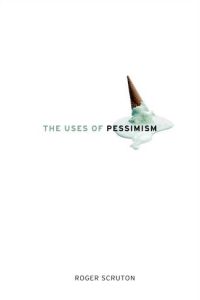
The Uses of Pessimism
And the Danger of False Hope
Recommendation
This unusual book purports to present the utility of pessimism, though “skepticism” might be a more accurate description. English philosopher and author Roger Scruton delves into the mechanisms that drive society. To avoid calamitous fallacies, so he contends, society needs a dose of pessimism leavened with respect for conventional laws and traditional civic solutions. He harks to a rightist point of view, but those people who also hold traditional conservative values may wonder at his approach. Even when his points are well taken, his tone is critical and his language is circuitous. He cites great thinkers to make his case, both demonstrating command of the canon and ferociously attacking a host of talk-radio hobgoblins, including affirmative action, immigration reform and – a bit further out on a limb – Islam, John Maynard Keynes and Jimmy Carter. He relishes demolishing fallacies, but sometimes goes too far, tipping into soapboxing and recasting factual conclusions to fit his argument. While he may deserve credit for being fearless about political correctness, some matters – like basic equality – are PC for a reason, and yet he tramples on them for good or ill. His answer to world problems is to urge making the best of reality and sticking with standard virtues, but he’s pretty much given up on a brighter tomorrow. While always politically neutral, getAbstract suggests that this self-confident, if polemical, challenge to conventional wisdom offers a distinctly alternative point of view.
Summary
About the Author
Roger Scruton is an English philosopher known for his studies of aesthetics. His previous books include Art and Imagination, Sexual Desire and The Meaning of Conservatism.














Comment on this summary or Начать обсуждение